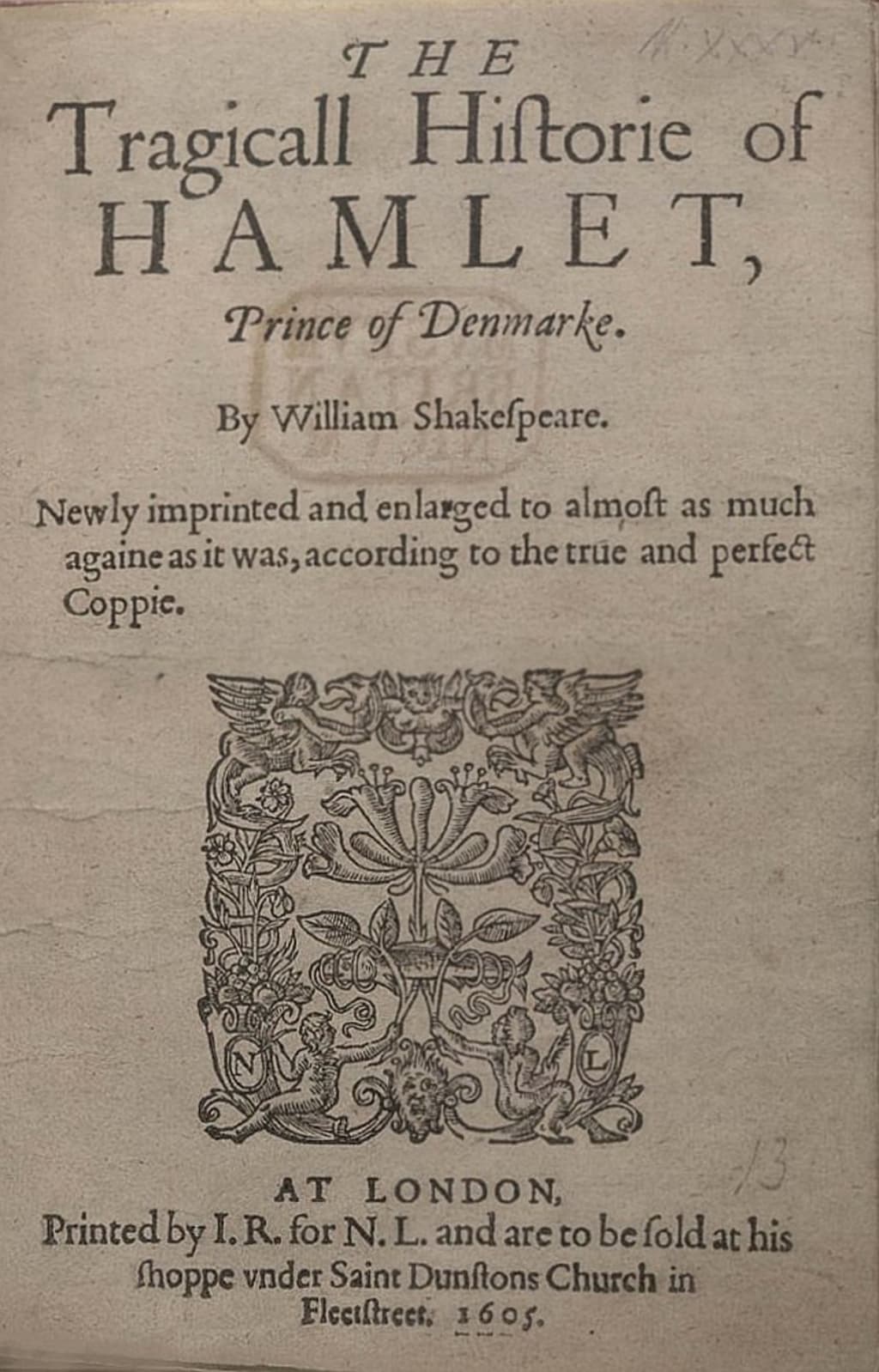As Madness Grows, The Death Bell Ever Tolls
An Essay on Hamlet

Hamlet, like many of Shakespeare’s notable plays, is a classic tragedy, intertwined with death and darkness. In The Embassy of Death: An Essay on Hamlet, G. Wilson Knight claims that the main theme of this somber story is death, demonstrated by “subsidiary incidents, persons, and detailed suggestion throughout.” Knight highlights this, citing the actions and characteristics of Hamlet and Claudius.
Claudius, as Knight says, “...is not drawn as wholly evil.” Although he is viewed as a villain by Hamlet, Claudius possesses virtues and morals which Hamlet does not exhibit. He is a good king and tactician. It is pointed out in the essay that Claudius deals with the problem of young Fortinbras efficiently and successfully. Another event that proves this statement is the fact that he is able to calm down Laertes and peacefully quell his foreboding rebellion. Claudius says to Gertrude, “How much I had to do to calm his rage” (IV. vii. 193.)! Knight writes that Claudius actually cares greatly for the Queen and does not want to hurt her by killing Hamlet.
As a king, Claudius tries to do what is best for his country. He realizes that Hamlet is a threat to the kingdom with his madness. He says, “I like him not, nor stand it safe with us to let his madness range” (III. iii. 1-2.). The king may also fear that Hamlet knows of the murder. Claudius knows what he has done and realizes that he will not be forgiven or go to heaven, saying after his prayer, “My words fly up, my thoughts remain below. Words without thoughts never to heaven go” (III. iii. 97-98.). Although he is successful at running the kingdom, Claudius is still haunted by the guilt of taking his brother’s life.
The knowledge of his death weighs hard on his mind. Knight continues writing that “...Claudius can hardly be blamed for his later actions. They are forced upon him.” One can say that he was only pressured to choose a last resort option because he did not properly deal with the problem at hand from the beginning. Instead of confronting Hamlet and talking to him one-on-one, Claudius decided to make secret plans and spy on Hamlet. The sabotage continued to grow.
Hamlet emerges looking as if he were the victim, but that quickly changes. Prince Hamlet does not take the death of his father well. Though their lands are bright, Hamlet is perpetually cloaked in black. Gertrude asks Hamlet to “...cast thy nighted color off...” (I. ii. 68.). Knight states that he stands as a constant “...reminder to every one of the fact of death.” The Queen tells Hamlet “Thou know’st ‘tis common, all that lives must die, passing through nature to eternity” (I. ii. 72-73.). Hamlet knows the truth of life and the unavoidability of death.
His realization becomes his reckoning. Knight writes that. “It was the devil of the knowledge of death, which possesses Hamlet and drives him from misery and pain to increasing bitterness, cynicism; murder, and madness.” Thoughts of grim mortality fester within Hamlet, and his grieving becomes an illness that affects him like a poison in his ear and “...spreads its effects outward among the other persons” (Knight). He would go to any lengths to achieve his revenge, even attempting to torture a “confession” out of Claudius by means of the play reenacting his father’s death. Hamlet explains his plan to Horatio, saying “...when thou seest that act afoot, even with the very comment of thy soul observe my uncle” (III. ii. 76-79.). The play within the play is a mirror image of the death of King Hamlet.
On the path to revenge, Hamlet does not want to just kill Claudius, he wants to ensure that his father’s murderer goes to hell. He gives up an opportunity to kill Claudius, explaining his hesitation by exclaiming, “And am I revenged, to take him in the purging of his soul, when he is fit and seasoned for his passage? No! Up, sword, and know thou a more horrid hent” (III. iii. 86-88.). If Hamlet killed Claudius while he prayed, he may still have had the chance to go to heaven. Hamlet wanted to wait until he was sinning to make sure that he would be damned.
As Hamlet’s mind unravels, he begins to speak all of his thoughts, no matter how harsh they may be. His tumble into madness “...insidiously undermines the health of the state, and adds victim to victim until at the end the stage is filled with corpses” (Knight). Darkness overtakes his intentions. We see him being cruel and rude to his mother because of her unfaithfulness to his father in her marriage to Claudius. Hamlet says that he will be “...cruel, not unnatural; I will speak daggers to her, but use none” (III. iii. 394-96.). While speaking to his mother, Hamlet murders Polonius because he thought he was Claudius. The murder of Polonius leads to Ophelia going insane and then possibly taking her own life. Hamlet does not directly murder Ophelia, but he does author the events that lead to her death. The death of Polonius also causes Laertes’s wrath. During this time, Hamlet also has Rosencrantz and Guildenstern murdered. The plan concocted by Claudius and Laertes to eliminate Hamlet leads to the demise of all three of them and the accidental death of the Queen. Gertrude gets caught in the crossfire of this poison vengefulness.
This Shakespearean tragedy holds true to its form. Knight’s interpretation of the theme is valid. Betrayal and grief encompass the cast, and we watch each person meet his or her doom. Emotions of fear and guilt allow the hate to spread and the insanity to take foot, making the people weak and vulnerable. Initially, a level-headed leader, Claudius transforms into a desperate soul, praying for forgiveness for his sins. Hamlet turns his revenge into a deadly game, and his madness “...spreads its deadly venom around” (Knight) like the sword in the duel. Death knows no mercy. Whether you be man or woman, guilty or innocent, eventually all will meet their fate.
About the Creator
Almárëa Laurësil
I'm an aspiring writer, artist, and musician.






Comments
There are no comments for this story
Be the first to respond and start the conversation.